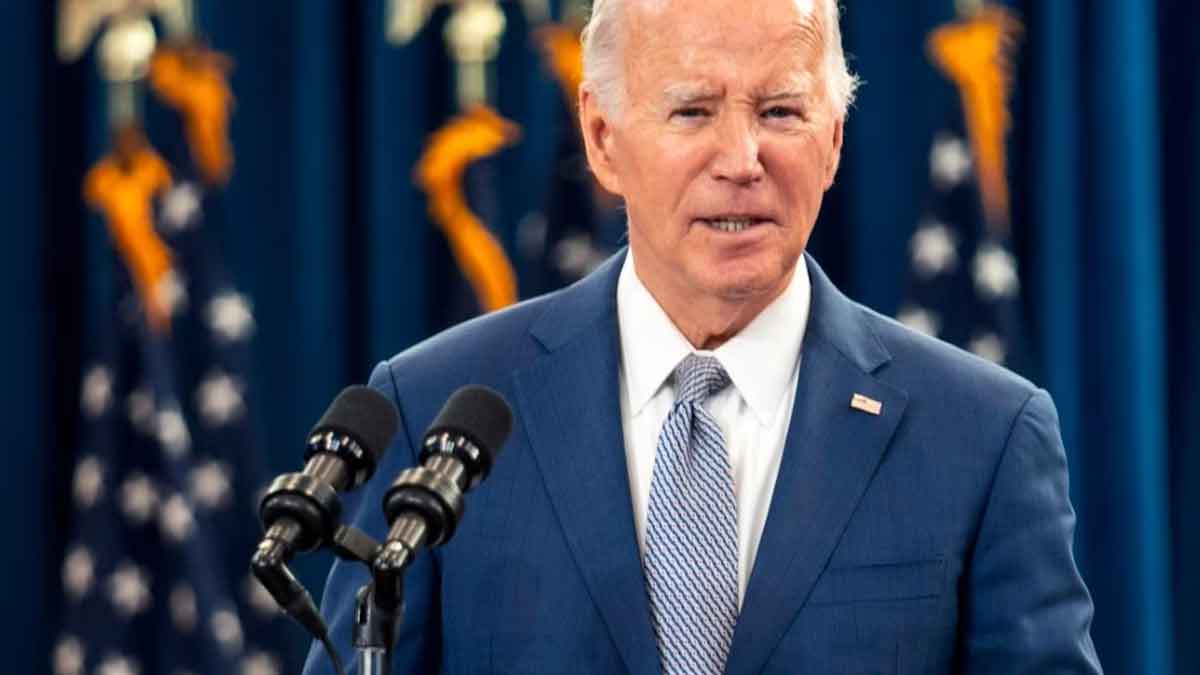- Home
- Billionaires
- Investing Newsletters
- 193CC 1000
- Article Layout 2
- Article Layout 3
- Article Layout 4
- Article Layout 5
- Article Layout 6
- Article Layout 7
- Article Layout 8
- Article Layout 9
- Article Layout 10
- Article Layout 11
- Article Layout 12
- Article Layout 13
- Article Layout 14
- Article Sidebar
- Post Format
- pages
- Archive Layouts
- Post Gallery
- Post Video Background
- Post Review
- Sponsored Post
- Leadership
- Business
- Money
- Small Business
- Innovation
- Shop
Recent Posts
Magician’s Biden Deepfake Robocall Prompts FCC Ban

A New Orleans-based magician, Paul Carpenter, has claimed responsibility for creating an AI-generated deepfake recording of Joe Biden, which was sent to voters before the New Hampshire primary on January 23. The recording has sparked a criminal investigation and led to a ban by the FCC on AI-generated robocalls.
Carpenter stated in an interview with NBC News that he was hired by a Democratic political consultant, Steve Kramer, who allegedly paid him $150 from a Venmo account linked to his father. Kramer, a consultant for the presidential campaigns of Dean Phillips and Kanye West, reportedly hired Carpenter to create the robocall but did not distribute it himself.
Using software developed by AI startup ElevenLabs, Carpenter claimed the task took him only 20 minutes. ElevenLabs has since suspended his original account, consistent with a Bloomberg report that the company identified and banned the account responsible.
Kramer has not publicly commented on the allegations but told NBC News that he would publish an op-ed that would “explain all” on Saturday. The Phillips campaign, for which Kramer worked as a consultant for ballot access in New York and Pennsylvania, stated that any actions he took to produce the New Hampshire deepfake were of his own volition. The campaign expressed disgust at the allegations and said they would denounce Kramer’s actions if they were proven true.
Leading up to the New Hampshire primary, an estimated 5,000 to 25,000 residents received a robocall with a voice that sounded like President Biden, urging them to “save their vote” for the general election in November and calling the primary “a bunch of malarkey,” using one of Biden’s famous phrases. The call led to a criminal investigation by the New Hampshire Attorney General’s office, which later traced the calls back to two Texas-based companies: Life Corporation and Lingo Telecom.
The FCC recently issued a unanimous ruling banning the use of AI-generated voices in all robocalls, considering them “artificial voices” under the Telephone Consumer Protection Act. The use of deepfake technology in political campaigns has raised concerns about its potential to mislead voters and undermine the democratic process.
Carpenter has maintained that he only created the recording and played no role in its distribution. He stated that there was no malicious intent and that he did not know how it would be distributed. Carpenter also expressed concern about the ease with which deepfake technology can be used, saying, “It’s so scary that it’s this easy to do. People aren’t ready for it.”
The case highlights the growing challenges posed by AI-generated content in the political arena and the need for regulations to address the potential misuse of such technology.
Recent Posts
Categories
- 193cc Digital Assets2
- 5G1
- Aerospace & Defense21
- AI17
- Arts1
- Banking & Insurance11
- Big Data3
- Billionaires153
- Boats & Planes1
- Business134
- Careers13
- Cars & Bikes39
- CEO Network1
- CFO Network16
- CHRO Network1
- CIO Network1
- Cloud6
- CMO Network17
- Commercial Real Estate7
- Consultant1
- Consumer Tech46
- CxO1
- Cybersecurity12
- Dining1
- Diversity, Equity & Inclusion4
- Education6
- Energy8
- Enterprise Tech24
- Events11
- Fintech1
- Food & Drink2
- Franchises1
- Freelance1
- Future Of Work2
- Games61
- GIG1
- Healthcare28
- Hollywood & Entertainment41
- Houses1
- Innovation21
- Investing2
- Investing Newsletters4
- Leadership62
- Lifestyle9
- Manufacturing1
- Markets19
- Media101
- Mobile phone1
- Money13
- Personal Finance2
- Policy109
- Real Estate1
- Research6
- Retirement1
- Small Business1
- SportsMoney4
- Style & Beauty1
- Success Income1
- Taxes1
- Travel9
- Uncategorized1
- Vices1
- Watches & Jewelry1
- world's billionaires127
Related Articles
Mackie’s MobileMix: Portable Studio Anywhere
In a musical landscape where spontaneity and creativity often collide, Mackie’s MobileMix...
By 193cc Agency CouncilMay 13, 2024Samsung’s One UI 6.1 Update Widens Galaxy AI Reach
Samsung has initiated the rollout of its highly anticipated One UI 6.1...
By 193cc Agency CouncilMay 13, 2024Dell Confirms Massive Data Breach—49 Million Customers Affected
Dell, the renowned technology hardware company, has confirmed that it fell victim...
By 193cc Agency CouncilMay 11, 2024Nothing Phone 2a Impresses with Design and Performance
In the realm of smartphones, longevity and distinctiveness are rare qualities. Yet,...
By 193cc Agency CouncilMay 10, 2024














Leave a comment